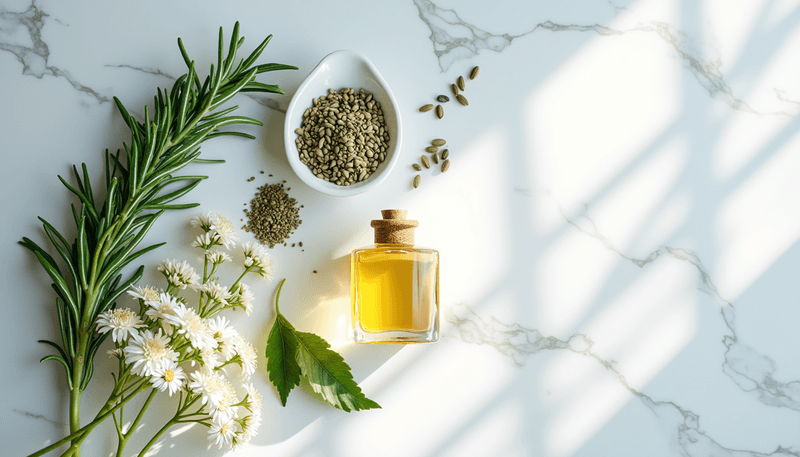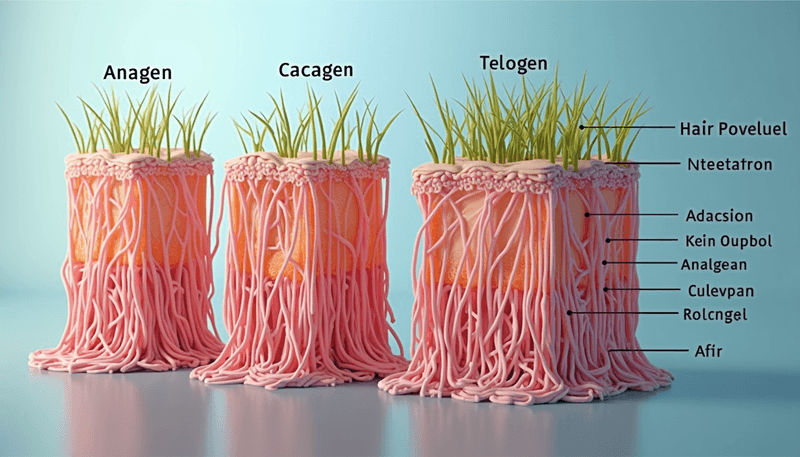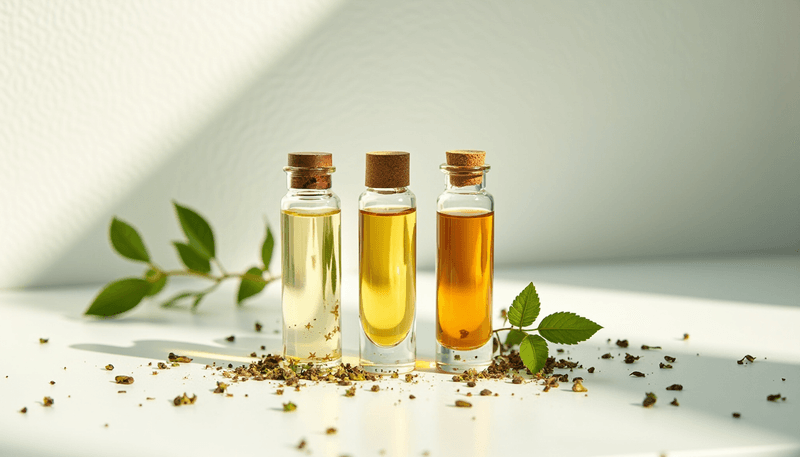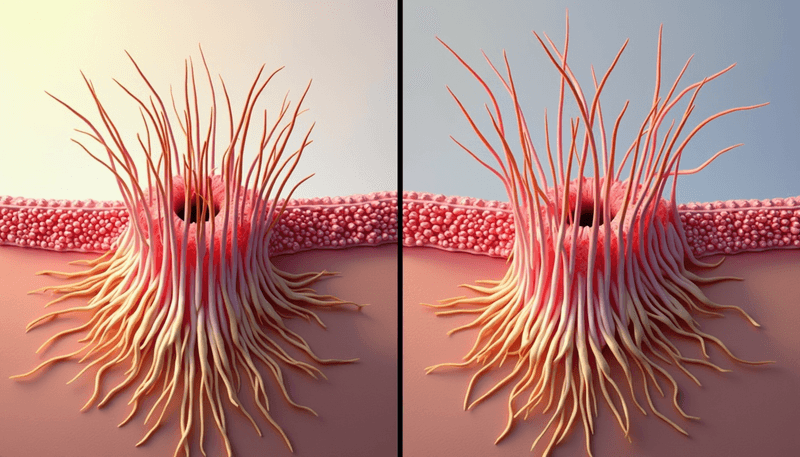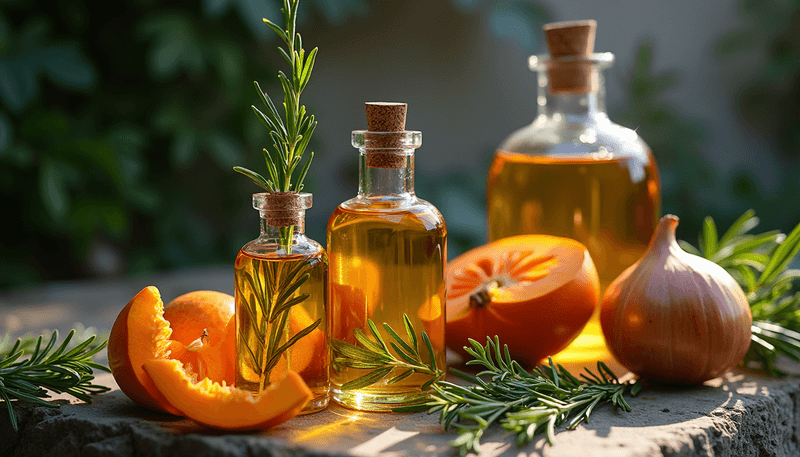Natural Solutions for Healthier Hair Growth

Have you ever noticed how a bad hair day can affect your entire mood? You're not alone. As someone who's spent years helping women navigate health challenges, I've seen firsthand how hair health profoundly impacts confidence and well-being. New research reveals promising natural solutions for maintaining healthy hair growth, offering hope for those struggling with hair loss or thinning.
Understanding Your Hair's Natural Cycle
Our hair has a fascinating life cycle that includes three main phases: growth (anagen), transition (catagen), and resting (telogen). Think of it like a garden - some plants are growing, others are preparing to shed leaves, and some are dormant. At any given time, about 85-90% of your hair is in the growth phase, which can last 2-7 years.
Did you know? The average person has around 100,000 hair follicles on their scalp, each following its own cycle independently.
What makes this cycle important? When this delicate balance gets disrupted by factors like stress, poor nutrition, or hormonal changes, it can lead to increased hair loss or thinning. Understanding this cycle helps explain why natural treatments often need time to show results - they're working with your body's natural rhythms.
The Power of Plant-Based Solutions
Recent scientific findings highlight several natural compounds that can support healthy hair growth. Here's what the research shows works best:
-
Herbal Extracts Mixture: A combination of nettle root, horsetail leaf, and chamomile flower showed significant results in promoting hair growth. These herbs are rich in vitamins and flavonoids that support follicle health.
-
Castor Oil: Clinical studies revealed that a 35% castor oil solution increased hair length, softness, and thickness in more than half of study participants within one month.
-
Green Tea Components: Epigallocatechin gallate (EGCG) from green tea demonstrated impressive ability to stimulate hair follicles and promote growth.
Practical Ways to Apply These Findings
Let's break down how you can incorporate these natural solutions into your hair care routine:
-
Morning Routine: Start your day with a cup of green tea. The EGCG compounds not only benefit your hair but also provide antioxidant support for your whole body.
-
Weekly Treatment: Apply a mixture of castor oil and essential oils (like rosemary) to your scalp once a week. Massage gently for 5-10 minutes and leave on for at least an hour before washing.
-
Daily Nutrition: Include foods rich in vitamins and minerals that support hair health. Think leafy greens, nuts, and seeds.
Question to consider: What small change in your daily routine could you make today to better support your hair health?
The Science of Stress and Hair Health
One fascinating aspect of the research reveals how stress directly impacts hair growth. When we're stressed, our bodies produce hormones that can push more hair follicles into the resting phase. Think of it like a garden during drought - the plants focus on survival rather than growth.
As a women's health advocate, I often share this story: A patient came to me frustrated about hair loss, focusing solely on topical treatments. When we addressed her stress levels through meditation and exercise, her hair health improved significantly within months.
The Role of Natural Oils
The research highlights several beneficial oils:
- Pumpkin Seed Oil: Rich in nutrients that block DHT (a hormone linked to hair loss)
- Rosemary Oil: Comparable to commercial hair growth products in effectiveness
- Onion Extract: Shown to increase hair growth through sulfur compounds
Looking Ahead: A Holistic Approach
The most effective approach to hair health combines multiple strategies:
- Internal Support: Proper nutrition and stress management
- External Care: Natural oils and gentle hair care practices
- Consistency: Regular application of chosen treatments
- Patience: Allow 3-6 months to see significant results
Take a moment to reflect: How many aspects of hair health are you currently addressing in your self-care routine?
Your journey to healthier hair doesn't have to be complicated. Start with one change - perhaps introducing a weekly oil treatment or adding more nutrient-rich foods to your diet. Monitor your progress with photos every few weeks, and remember that sustainable changes often yield the best long-term results.
Ready to take the first step? Choose one natural solution from this article and commit to trying it consistently for the next month. Your future self (and your hair) will thank you.

Dr. Anya Sharma, MD
Dr. Anya Sharma is a board-certified gynecologist with over a decade of experience specializing in women's health and patient education. She graduated from Johns Hopkins School of Medicine and completed her residency in Obstetrics and Gynecology at a top hospital in New York City. With a passion for empowering women, Anya transitioned to content creation to provide accessible, evidence-based information on health topics relevant to mid-aged women. Her empathetic and pragmatic approach combines medical expertise with relatable insights, making her a trusted voice in the field.
